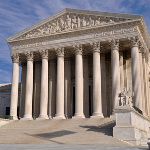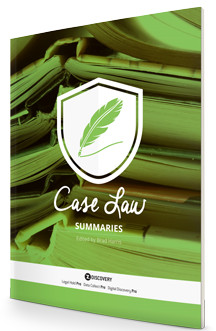 Ernest Aliseda has joined Dykema in its Commercial Litigation Practice Group as a member in the firm’s McAllen, Texas office.
Ernest Aliseda has joined Dykema in its Commercial Litigation Practice Group as a member in the firm’s McAllen, Texas office.
Prior to joining Dykema, Aliseda served as General Counsel/Chief Legal Officer for the Loya Insurance Group companies, where he handled general legal matters and managed and oversaw diverse litigation throughout the country. Aliseda is also a former State District Judge for both the 398th and 139th State District Courts in Hidalgo County.
In a release, the firm said Aliseda will advise and represent clients in commercial and general litigation matters, along with serving as a mediator and arbitrator in personal injury, commercial, employment, international and personal injury law cases.
“We are very pleased and fortunate to add an attorney of Ernie’s stature to our roster,” said Diann Bartek, Office Managing Member of Dykema’s McAllen office. “His reputation precedes him. There is no doubt that his strong background in commercial litigation and his experience as a judge will be extremely valuable to the firm and its clients.”
Aliseda is a governor-appointed Regent of the University of Texas System Board of Regents and a State Bar of Texas President-appointed member of the Board of the Texas Bar College. He received his law degree from the University of Houston Law Center and his undergraduate degree from Texas A&M University.
He is board certified by the Texas Board of Legal Specialization in personal injury trial law, along with being trained as a mediator, arbitrator, and litigation management professional. He is also a lieutenant colonel in the U.S. Army Reserves, where he serves as a military judge.
 As the U.S. Supreme Court enters the last month of its term, the impact of having only eight justices already is clear. Some of the most high-profile cases of the year are not being decided, or perhaps even worse, are being resolved on narrow grounds that create more confusion than clarity in the law, writes
As the U.S. Supreme Court enters the last month of its term, the impact of having only eight justices already is clear. Some of the most high-profile cases of the year are not being decided, or perhaps even worse, are being resolved on narrow grounds that create more confusion than clarity in the law, writes 
 A new article published by
A new article published by  Zapproved has published its updated
Zapproved has published its updated  U.S. District Court Judge Dee Drell of the Western District of Louisiana recently denied a motion to alter or amend the court’s judgment against CITGO Petroleum Corp. – allowing an $81 million judgment against the oil company to stand, report
U.S. District Court Judge Dee Drell of the Western District of Louisiana recently denied a motion to alter or amend the court’s judgment against CITGO Petroleum Corp. – allowing an $81 million judgment against the oil company to stand, report  Google won a jury verdict that ends Oracle’s claim to a $9 billion slice of the search giant’s Android phone business,
Google won a jury verdict that ends Oracle’s claim to a $9 billion slice of the search giant’s Android phone business, 
 The Associated Press is
The Associated Press is  Ernest Aliseda has joined
Ernest Aliseda has joined